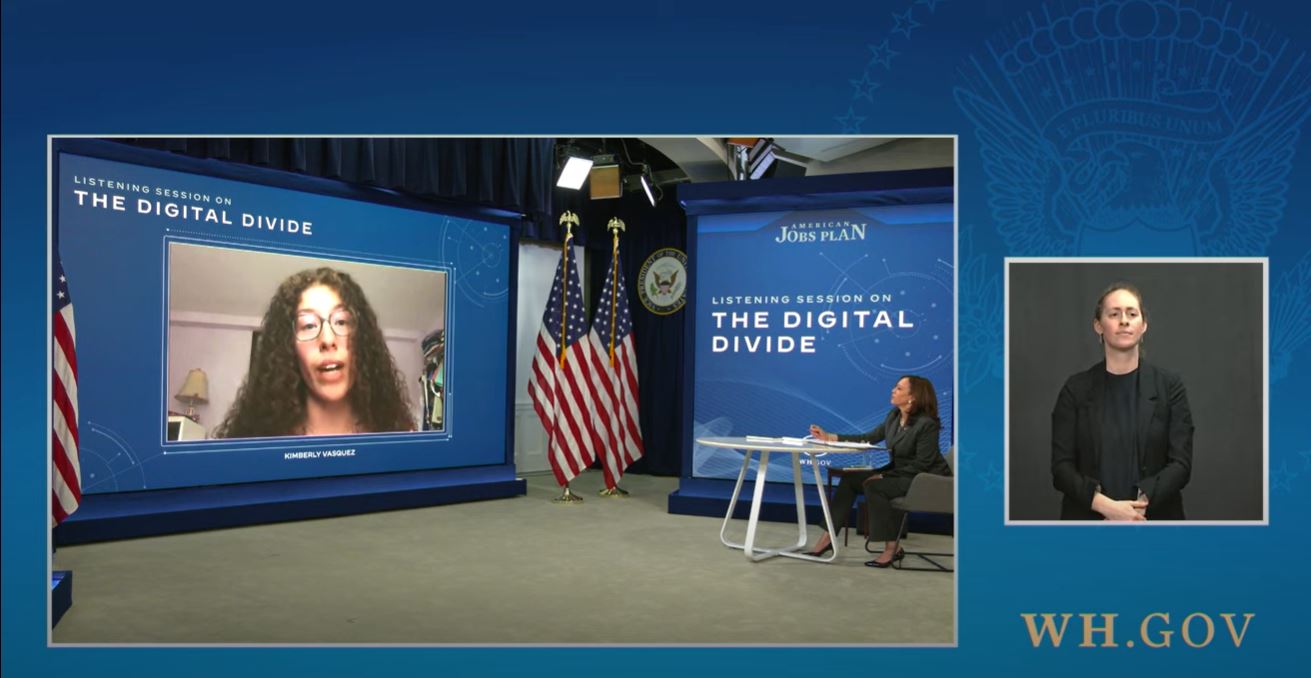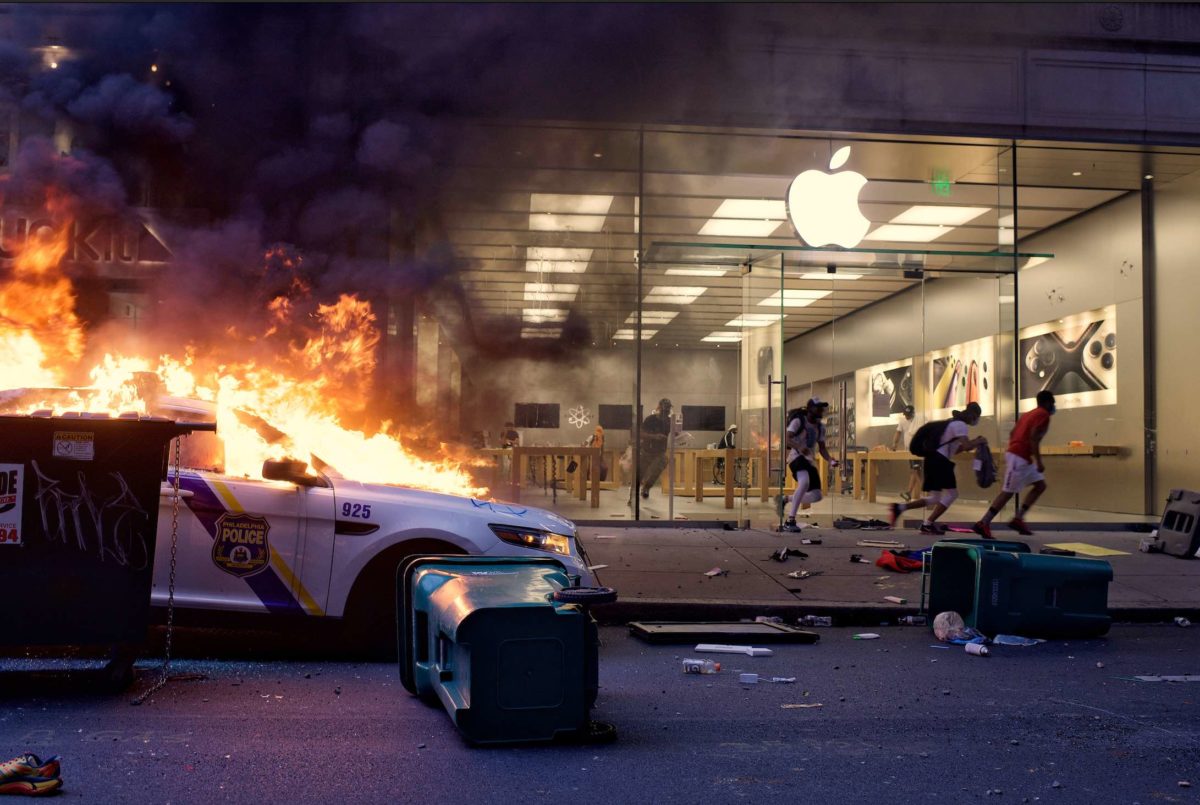The organizing work of Students Organizing a Multicultural and Open Society (SOMOS) is resonating on a national stage this year, as the Latinx and immigrant student group out of Baltimore City College is pushing for measures to close the digital divide during a pandemic that shifted school and work to the home.
On Monday, this advocacy went to the upper echelons of the federal government, as SOMOS organizer Kimberly Vasquez participated in a listening session on digital equity with U.S. Vice President Kamala Harris.
Fruits from a recent New York Times article on SOMOS’ work blossomed, as the vice president reached out to Vasquez to get more insight on how the digital divide is affecting residents around the country, and how new funding proposed in the Biden administration’s American Jobs Plan could help to close it.
During the panel discussion, Vasquez outlined SOMOS’ successses, from Comcast‘s decision to double speeds for its low-cost Internet Essentials package in February, to the advocacy that led to Baltimore City Council approving $3 million to purchase Chromebooks for students in April 2020.
When it comes to the work going forward, she pitched a “sustainable youth jobs program of digital navigators” to Harris.
Vasquez said SOMOS is working with advocates to encourage the city to invest $1 million of its expected aid from the federal government’s recently-passed American Rescue Plan for the program. The digital navigators initiative would offer training to youth on digital literacy skills that they would then use to help other community members, both by teaching those digital skills and aiding in adoption of digital resources, Vasquez said.
“Just as my peers already help their families, they would guide residents of all ages on how to effectively adopt technology and internet benefits,” said Vasquez.
Watch the full panel below. Vasquez’ remarks begin at the 44-minute mark:
[youtube https://www.youtube.com/watch?v=ODJBLpXc60U?start=2640]







